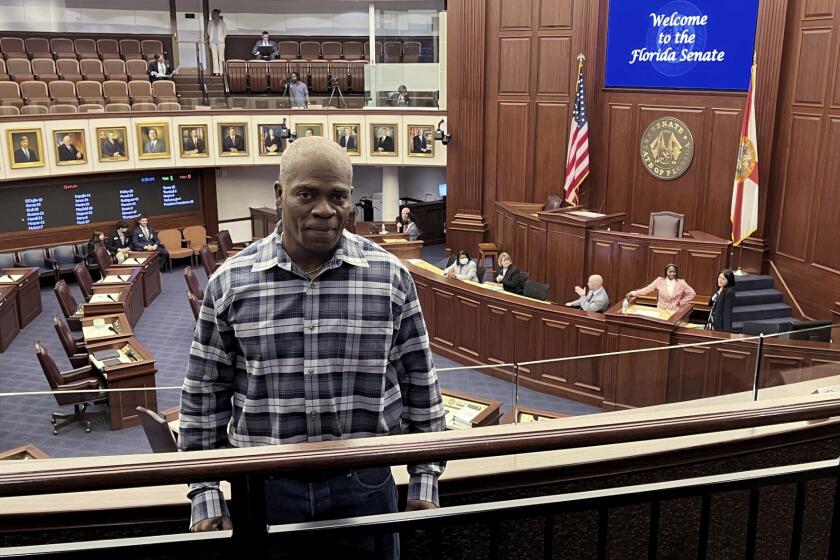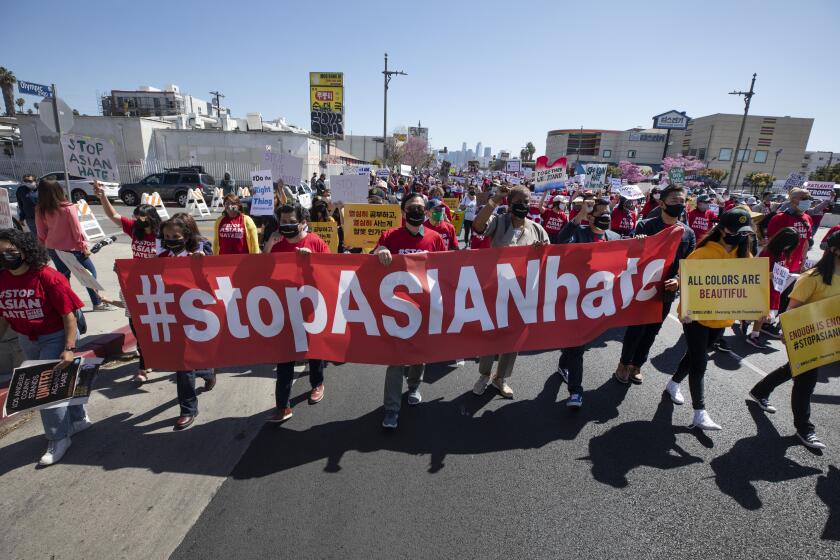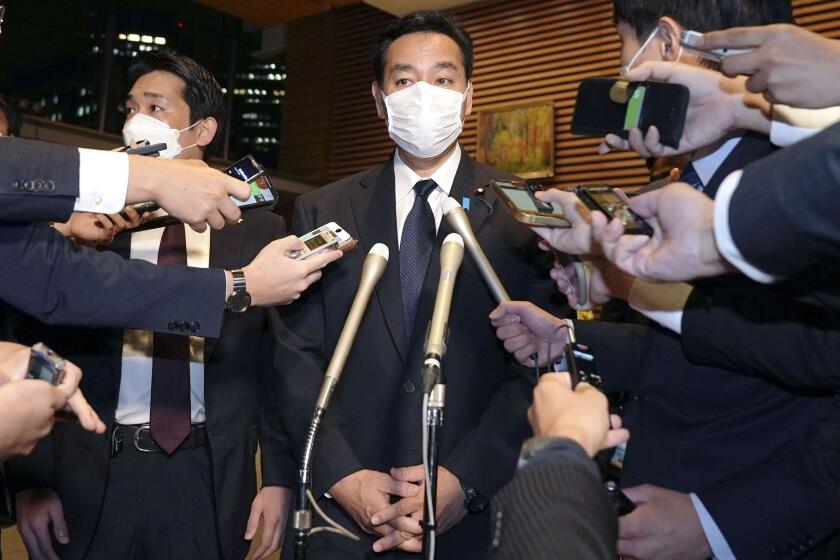Killing of woman involved with religious group unsettles Korean Americans in Georgia
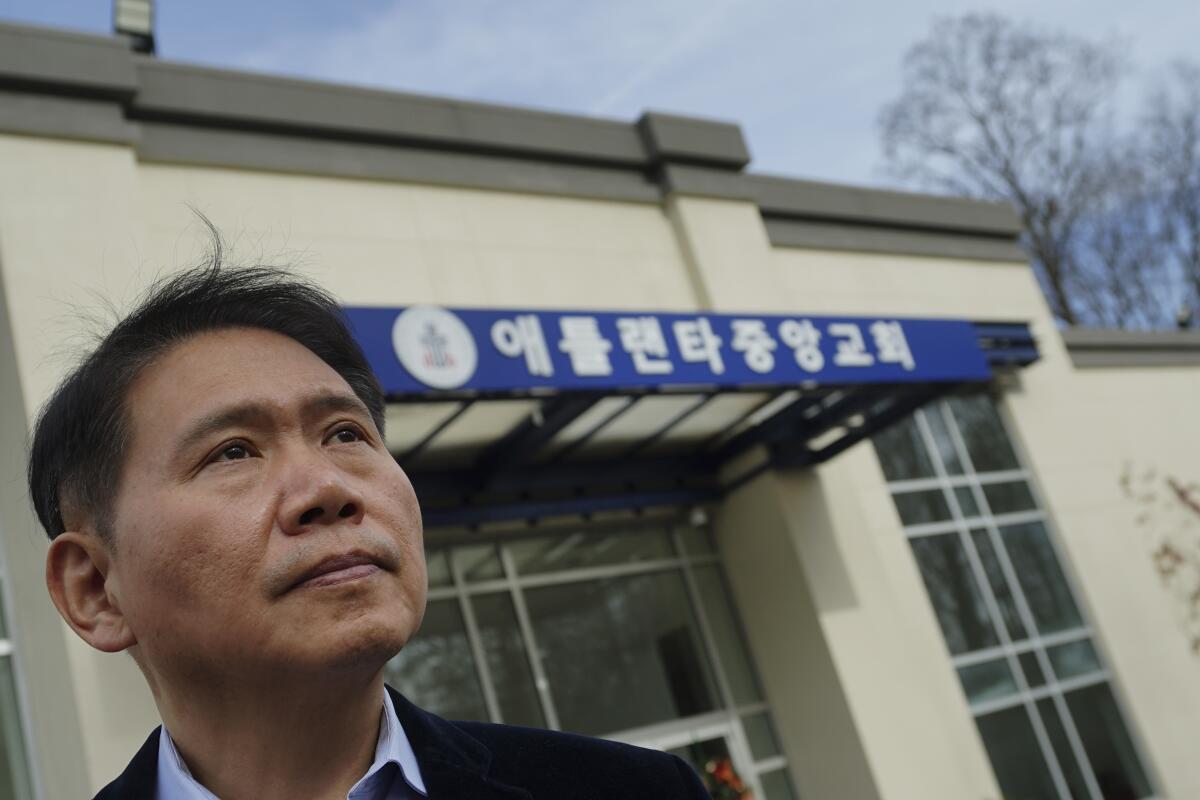
- Share via
LAWRENCEVILLE, Ga. — Just days into the admission process for Soldiers of Christ, Sehee Cho was faint and feeble.
The 33-year-old had come to the Atlanta suburb of Lawrenceville from South Korea in July to heal from a traumatic experience. Instead, police say, the Soldiers group, led by two Korean American brothers, held her captive for weeks, torturing and starving her until she died.
Officers discovered her decaying body, weighing just 70 pounds, in September in the trunk of a car, and prosecutors have charged the brothers, their mother, a third brother and three other people with murder.
The gory details — covered widely in Korean-language news outlets in the U.S. — have shocked the large Korean and Korean American community in metro Atlanta. Community leaders say the case is a wake-up call for the community to be more vigilant about religious cults and potential threats to new arrivals from South Korea.

“It really kind of alerted people that we should not be so comfortable,” said Sarah Park, president of the Atlanta chapter of the Korean American Coalition.
The proximity of the slaying to the heart of Korean social and cultural life in the region was unsettling, she added.
The brothers and mother lived in a part of Gwinnett County dubbed “Seoul of the South” for its abundance of Korean restaurants, bakeries and other establishments. The car with Cho’s body was left in the parking lot of a popular Korean spa on a main thoroughfare in the Korean business district.
“Usually, Koreans are good people, so they don’t guard themselves or watch strangers,” said Sunny Park, a prominent Korean American businessman. “But now they will.”
Leonard Allan Cure spent 16 years behind bars for a robbery he didn’t commit. Less than three years after his release, he was shot and killed during a traffic stop in Georgia.
Community leaders say what’s even more unsettling is the relatively young ages of most of the defendants — five are in their 20s and one is 15 — and their religious ties. The mom and brothers, at least for a time, attended church locally, and the father is a pastor in the area. He has not been charged.
The church is a respected and essential part of Korean life in the U.S, and some local pastors worry that the slaying could indicate broader cult-like activity that has gone undetected. Religious cults have been a concern in South Korea.
“Korean Christians in the United States need to be aware of their existence and their reality,” said the Rev. Byeong Cheol Han, senior pastor of the Korean Central Presbyterian Church of Atlanta.
Investigators have not been able to find any Soldiers of Christ members or affiliates outside of the small group of defendants, police say. Still, Han and other pastors organized a seminar in November to alert local college students to Korean cults and how they operate.
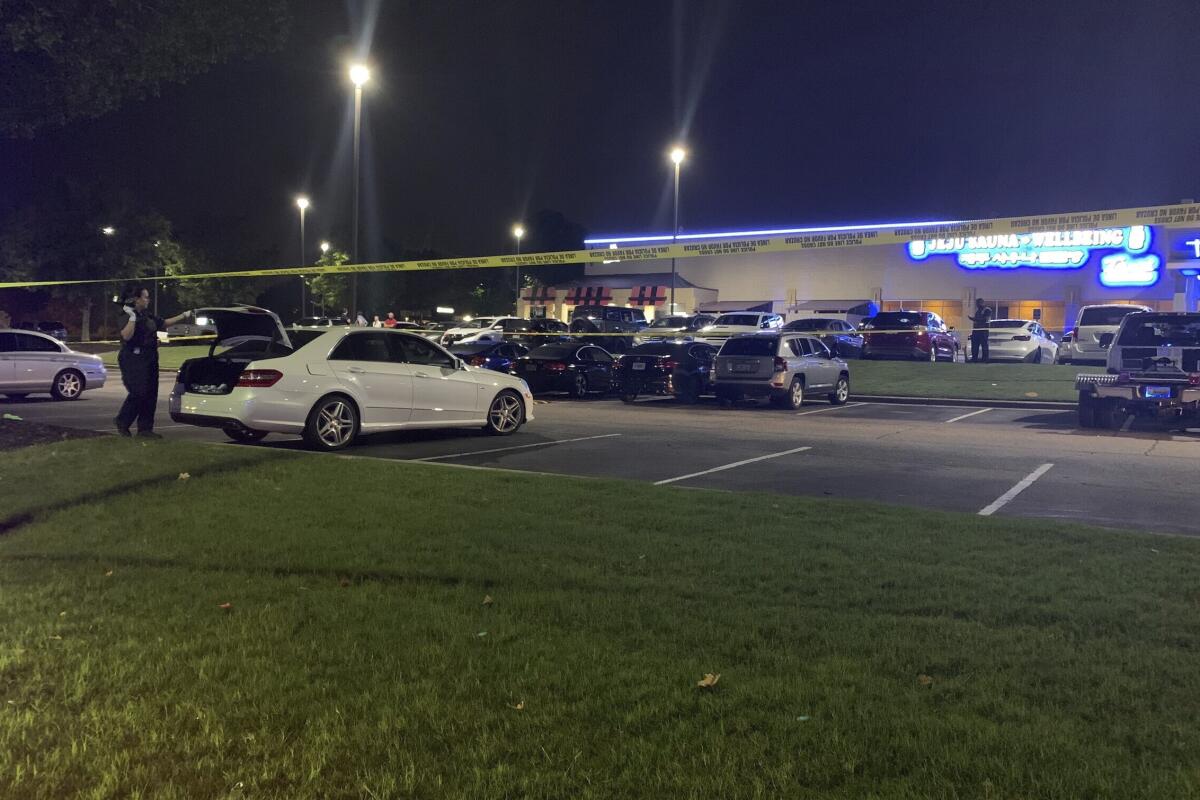
Prosecutors say Joonho Lee, the founder of Soldiers of Christ, wanted 12 disciples and met a Korean American student at Georgia State University after Cho’s death to try to recruit her. David Boyle, an attorney for another defendant in the case, 26-year-old Eric Hyun, has said his client was also recruited by the group and tortured.
One of the defendants told police that Lee received instructions directly from God, investigators say.
A Gwinnett County police detective testified at an Oct. 19 hearing that the group made video recordings of themselves beating Cho with a belt and putting her in ice baths — once when she appeared weak and a second time when she looked like she was close to death. Five of the defendants sat stoically in the courtroom, listening through headsets to a Korean translation of the lurid evidence.
Lee’s attorney, Scott Drake, said outside the hearing that he was still gathering information and could not immediately comment. He did not respond to multiple phone messages and emails.
The Atlanta shootings revealed a less-recognized and growing segment of the Asian American immigration story — one that doesn’t fit the stereotype.
Lee, 26, told investigators that Cho went through the initiation voluntarily, according to prosecutors. Cho’s mother knew Lee’s mother in South Korea and brought Cho to the Lee family home July 21 to “find God” and ease her depression, Gwinnett County Police Det. Angela Carter said at the hearing.
Messages the defendants exchanged, however, show that Cho tried to quit the training almost immediately after it began, but the group would not let her go, prosecutors say. “There is no quitting this program,” the 15-year-old defendant, Junyeong Lee, told investigators, according to police.
Prosecutors have charged him as an adult. He, Joonho Lee and a third defendant whom police have also described as a leader of the group, Joonhyun Lee, 22, are brothers. Their mother, Mihee Lee, 54, was arrested about a month after they were taken into custody in September.
The Associated Press left phone and email messages with David Whitman, an attorney for Junyeong Lee. Attorney Jason Park, who is representing Joonhyun Lee, said he was restricted from speaking about a case that is still active.
News Alerts
Get breaking news, investigations, analysis and more signature journalism from the Los Angeles Times in your inbox.
You may occasionally receive promotional content from the Los Angeles Times.
Mihee Lee’s attorney, John Burdges, declined to comment. At the Oct. 19 hearing, however, he questioned Cho’s mental state and the claim that she was held against her will.
The initiation took place at the Lee family’s modest stucco and stone home in a subdivision in Lawrenceville about 30 miles northeast of Atlanta.
The other two defendants are Gawon Lee, 26, a cousin of the Lee family who was visiting from South Korea, and Hyunji Lee, 25, Joonho Lee’s fiancee. In addition to murder, all seven defendants are charged with false imprisonment and concealing death.
Ashley McMahan, Hyunji Lee’s attorney, said her client was treated like an “indentured servant” by the other defendants. She was also in South Korea for some of the time that prosecutors say Cho was held and did not know what was happening, McMahan added.
The resignation is part of a widening controversy over the ties that dozens of Japanese ruling party lawmakers maintain with the Unification Church.
Prosecutors, however, say Joonho Lee told Hyunji Lee in a chat message shortly after the initiation started around July 27 that Cho had apparently not even had water for three days and kept fainting, according to an indictment filed Nov. 29.
On Aug. 17, Cho was screaming for food, Junyeong Lee reported in a chat message. His other brother, Joonhyun Lee, instructed him to beat her if she screamed again, the indictment says.
Two days later, prosecutors say Joonhyun Lee wrote a chat message to himself with the dates that he said Cho began “fasting” and was assaulted. The final date in the message was Aug. 18: “1 AM time of death (estimated time).”
More to Read
Sign up for Essential California
The most important California stories and recommendations in your inbox every morning.
You may occasionally receive promotional content from the Los Angeles Times.
